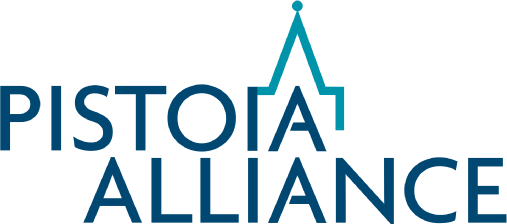Boston, 17 July, 2019 – The Pistoia Alliance, a global non-profit that works to lower barriers to innovation in life sciences R&D, today announced the launch of its FAIR Implementation project, backed by pharmaceutical companies including Roche, Astra Zeneca, and Bayer. The first project milestone by the end of 2019 will be the release of a freely accessible toolkit to help companies implement the FAIR (Findable, Accessible, Interoperable, Reusable) guiding principles for data management and stewardship (DOI: 10.1038/sdata.2016.18). As the life sciences industry continues to transform digitally, the sector needs clear and practical guidance on how data and relevant metadata is captured and managed to foster greater collaboration and more effective partnerships.
The FAIR guiding principles help to meet this need, but many companies are struggling to implement the guidelines as discussed recently by Wise and co-authors (DOI: 10.1016/j.drudis.2019.01.008). This need will be addressed by development of the FAIR toolkit which will consist of selected tools, best practices, training materials, use cases, and methodology for change management, which will be assembled together on a user-friendly and freely accessible web site. It will help organizations to undertake their digital transformation, make preparations for the Lab of the Future (LoTF) and to accelerate the application of AI and deep learning.
“Roche’s overarching strategy is to become a data driven organization, so we are very excited to help shape and lead on this project. We believe the FAIR guiding principles are vital in helping the entire life science ecosystem benefit from the data the sector is creating. Today, data assets are siloed, stored in varying formats, hard to retrieve and share, and are not interoperable – meaning the knowledge we have already learned can’t be utilized by and extended to a wider audience,” commented Dr. Martin Romacker, Principal Scientist at Roche. “To follow the FAIR guiding principles is a big task for pharmaceutical companies to undertake, but we know everyone is in the same boat and there is no point undergoing this culture shift alone. The Pistoia Alliance is perfectly positioned to drive this change within the industry, and companies need to act with a sense of urgency to implement FAIR if we are going to realize the value of analytical methods such as deep learning based on high quality data.”
Life science organizations are becoming increasingly aware that data is a corporate asset, while at the same time, the ‘data deluge’ continues to put scientists under pressure. Data needs to be better managed to build a more collaborative research environment, and made shareable and interoperable, if the industry is to continue making breakthroughs. The FAIR guiding principles for data management and stewardship were published in 2016 by Wilkinson and collaborators to emphasize machine-actionability of well managed data so that computational systems can find, access, interoperate and reuse data with minimal human intervention. This allows humans to cope with the daunting scale of the increasing volume and complexity of data being generated now. FAIR is also crucial for AI and machine learning which benefits from large, harmonized data sets for better predictions.
“As a pre-competitive consortium, the Pistoia Alliance is the right body to undertake this project to develop a FAIR toolkit for industry use, which is being supported actively by Pistoia member organisations. The FAIR toolkit will be designed to help industry to implement FAIR in a very practical way. This is because all life science organizations will need to take similar steps on this journey, so all will benefit from collaboration and sharing through this project” commented Ian Harrow, Consultant at The Pistoia Alliance. “This freely accessible FAIR toolkit promises to help the life science industry to harness the explosion of data for much greater productivity in a timely manner.”
“We are thrilled to be working with our peers to drive such a crucial change and help forge the path for industry-wide FAIR implementation,” commented Dr. Alexandra Grebe de Barron, IT Business Partner at Bayer. “The development of the FAIR toolkit is coming at a time when life science companies are reviewing how they store and manage data to meet new requirements and undertake digital transformation projects. By collaborating with colleagues and partners we can help to guide the adoption process and culture change required.”
The Pistoia Alliance invites more members to join the FAIR Implementation project team to help steer it and ensure it meets industry requirements. The group is also looking for other organizations in the industry to join the Community of Interest and to contribute feedback. To find out more please get in touch: ProjectInquiry@pistoiaalliance.org.
–ENDS–
About The Pistoia Alliance:
The Pistoia Alliance is a global, not-for-profit members’ organization made up of life science companies, technology and service providers, publishers, and academic groups working to lower barriers to innovation in life science and healthcare R&D. It was conceived in 2007 and incorporated in 2009 by representatives of AstraZeneca, GSK, Novartis and Pfizer who met at a conference in Pistoia, Italy. Its projects transform R&D through pre-competitive collaboration. It overcomes common R&D obstacles by identifying the root causes, developing standards and best practices, sharing pre-competitive data and knowledge, and implementing technology pilots. There are currently over 100 member companies; members collaborate on projects that generate significant value for the worldwide life sciences R&D community, using The Pistoia Alliance’s proven framework for open innovation.
Media Contacts:
Spark Communications
+44 207 436 0420
pistoiaalliance@sparkcomms.co.uk
